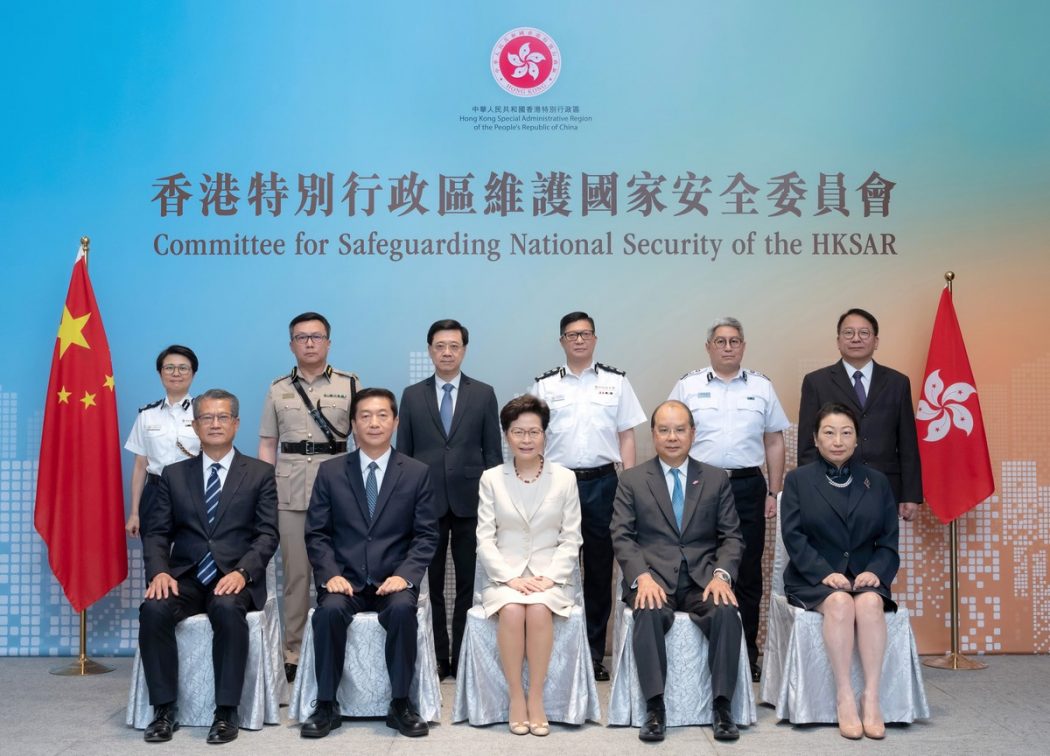A barrister and several legal scholars have told HKFP that new police powers to conduct interceptions and covertly surveil Hong Kong lawyers under Beijing’s new national security law for the city are “definitely worrying.”
This week, the local police force won sweeping new powers to conduct warrantless searches, restrict suspects’ movements, freeze their assets, intercept communications and require internet service providers to remove information, according to Article 43 of the controversial legislation gazetted on Monday night.

The implementation rules for Article 43 specified that police could, under “exceptional circumstances,” get authorisation from the chief executive to intercept communications and conduct surveillance at a lawyer’s office, residence and other relevant premises.
Legal practitioners may be put under police surveillance when the authorities have “reasonable grounds” to believe that they are involved in any activity that would constitute an offence endangering national security. The law criminalises secession, subversion, terrorism and foreign interference with violators facing up to life imprisonment.
“Exceptional circumstances” also exist when lawyers are considered party to any activity that is a threat to national security, or if any of the communications concerned are seen as furthering a criminal purpose.
‘Major threat’
Local barrister Erik Shum described such powers under Article 43 as a “major threat” to the privacy and security of lawyers in Hong Kong. Criminal law and international human rights law expert Surabhi Chopra said the new guidelines are “definitely worrying,” and they “sit uneasily” with the right to freedom and privacy communication, as well as the right to confidential legal advice as provided in the Basic Law.

Both Shum and Chopra pointed out the authorisation process for conducting interception of communications and surveillance under the national security law lacks checks and balances from the judicial branch, which contradicts the existing practice.
According to the current Interception of Communications and Surveillance Ordinance, any interception and surveillance operation by law enforcement agencies that would significantly interfere with individual privacy must be authorised by a High Court judge.
The Secretariat of the Commissioner on Interception of Communications and Surveillance also releases an annual report on the authorisations issued and declined. In 2018, a total of 1,378 authorisations were made, while six applications for interception were refused. The secretariat told HKFP that the 2019 report will be published in around November or December.
“Under the new national security framework, it is a purely executive decision,” said Chopra, who teaches at the Chinese University of Hong Kong (CUHK).

Another CUHK law professor, Stuart Hargreaves, told HKFP that the direct authorisation from the city’s leader was similar to a scheme that existed before the introduction of the ordinance. But the scheme – under section 33 of Telecommunications Ordinance – was found unconstitutional by the Court of Final Appeal back in 2006.
Chopra deemed the range of circumstances in which lawyers’ communications could be intercepted – or their workplaces or homes surveiled – as “ambiguous” and “potentially quite wide.” She said this could stop lawyers from having “full and frank” discussions with their clients.
Shum shared the same concerns: “The scope is too broad and there is little protection for our legal professional privilege (LPP).”
Robust scrutiny
The legal document revealed on Monday has a section on protection of LPP, including urging officers to take “extreme care” when handling potential interception and surveillance applications concerning premises or telecommunications services used by a lawyer. It is also stated that dedicated units would screen out information protected by LPP and withhold such information from the investigators.

But Shum and Chopra were sceptical about the effectiveness of an internal check.
“This sort of internal check, while important, can’t make up for the lack of robust, independent scrutiny,” Chopra said.
Shum agreed: “We can only trust them. But the trust is based on actual checks and balances in the system, not simply based on words of the authorities.”
He added lawyers in Hong Kong may have to step up their digital security measures, and keep minimal information on their client records.
“No matter how much money we spend on upgrading our security systems, we cannot compete with that of the government. It will be a dilemma for lawyers – to balance between protecting ourselves and maintaining some sort of record with our clients,” he said.
